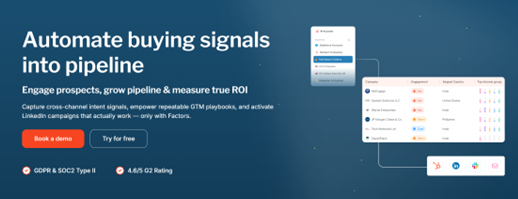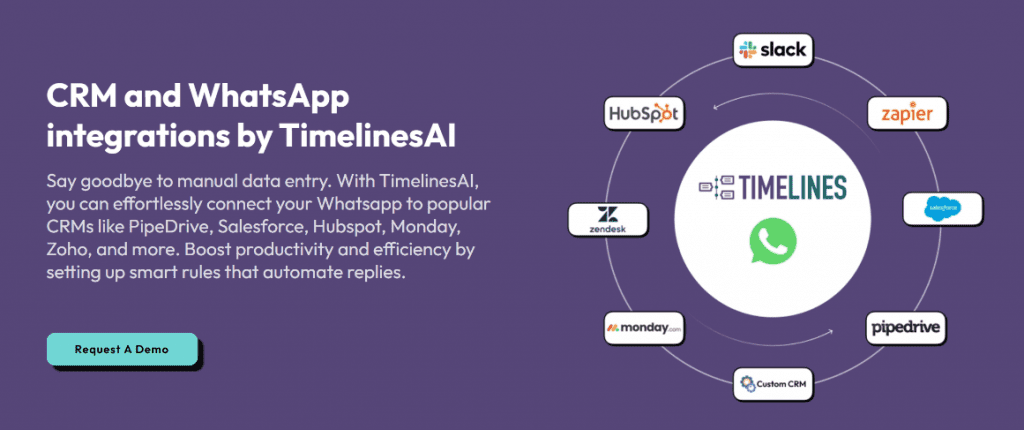Blogging has changed a lot over the years. When I started, the idea of using artificial intelligence (AI) to write content, generate ideas, or optimise posts seemed like something out of a sci-fi movie. But today, AI is everywhere, and if you’re not using it, you might be missing out on some fantastic opportunities to improve your blog.
Disclosure: If you click on my affiliate/advertiser’s links, I am going to receive a tiny commission. AND… Most of the time, you will receive an offer of some kind. It’ s a Win/Win!
Let’s be clear: AI isn’t here to replace you—it’s here to help. Whether you’re writing a travel blog, sharing health tips, or diving into historical stories, AI tools can take some of the grunt work off your plate, so you can focus on what really matters: creating meaningful, engaging content.
In this post, I’ll walk you through how AI can support your blogging journey. We’ll explore tools, techniques, and the unique ways AI can enhance different types of blogs. But don’t worry—I’ll also cover the risks, because using AI requires care and a strong commitment to originality.
By the end, you’ll have a clear idea of how to integrate AI into your blogging process, whether you’re just starting out or looking to optimise an established blog. Let’s jump straight in!

Points For Discussion
1. What is AI for Blogging?
• Definition of AI in the context of blogging.
• Examples of AI blogging tools like Jasper and ChatGPT.
• How these tools can simplify content creation and idea generation.
2. AI Tools to Help Create Better Blog Content
• Blog AI tools
• Tools for brainstorming (AI prompt blog).
• Content creation tools like Jasper and Writesonic (AI blogging tools).
• Proofreading and optimisation tools (Grammarly, SurferSEO).
3. AI in Storytelling for Blogs
• Blogging storytelling
• How AI can assist in creating engaging narratives.
• Importance of maintaining a personal voice and emotional connection.
4. Using AI for Specific Blog Niches
• Travel Blogs: Create itineraries, location guides, and highlight cultural details (travel blog).
• Health Blogs: Research trends, provide tips, and verify information (health-related blogs).
• Historical Blogs: Generate timelines and fact-check historical content (historic blog).
• Religious or Philosophical Blogs: Suggest prompts for in-depth analysis (blogging theology).
5. The Benefits of Using AI in Blogging
• Save time on research and drafting.
• Generate blog post ideas quickly (blog post using AI).
• Improve SEO with keyword optimisation.
6. The Risks and Ethics of AI in Blogging
• AI help with a blog
• Plagiarism concerns—always ensure content is original.
• Over-reliance on AI may diminish personal connection with readers.
• How to fact-check AI-generated content for accuracy.
7. Future Trends in AI Blogging Tools
• Upcoming innovations in AI blogging.
• Free AI tools for beginner bloggers (free AI for blogs).
8. Summary and Conclusion
The potential of AI in blogging and the importance of creativity, originality, and the human touch.
involve.me enables you to not only understand and score your website visitors, but offer them guided and tailored funnels, increasing both the likelihood of conversion and the quality of your leads. In addition, involve.me can be integrated directly into your martech and sales stack, enhancing the tools you already use and automating entire parts of your sales and marketing pipeline.
involve.me helps digital marketing professionals optimize conversion rates and generate high-quality leads through no-code interactive funnels without relying on developers or designers.
If you sign up via this link, you ‘ll get a 15% discount oninvolve.me purchases.
1. What is AI for Blogging?
AI for blogging sounds fancy, but it’s really just a way to describe tools that use artificial intelligence to make blogging easier. These tools can do everything from generating ideas for blog posts to writing entire paragraphs—or even entire articles—for you.
For example, tools like Rytr and ChatGPT can help you brainstorm ideas or create drafts. Grammarly ensures your writing is polished and free of errors, while platforms like RyterAI help optimise your posts for search engines. It’s like having a team of assistants who never sleep!
But here’s the thing: AI tools are only as good as the input you give them. You can’t just say, “Write me a blog,” and expect perfection. Instead, think of these tools as collaborators. You guide them with prompts, review their output, and refine it with your own voice and expertise.

2. AI Tools to Help Create Better Blog Content
If you’ve ever sat in front of a blank screen wondering what to write, you’re not alone. That’s where AI tools come in handy. They can give you a nudge when inspiration runs dry or speed things up when deadlines are looming.
For example, AI prompt tools like ChatGPT can help you brainstorm topics. Simply ask, “What are some blog ideas for a health blog?” and you’ll get a list of suggestions. From there, you can refine the ideas to suit your audience.
Once you’ve got your topic, tools like Writecream or Writesonic can help you create content. They’re particularly useful for drafting outlines or writing descriptions. Just remember to add your personal touch—AI isn’t great at sounding human on its own.
And don’t forget editing tools. Grammarly is fantastic for cleaning up grammar and style, while Writecream can help you include the right keywords for better search rankings.

3. AI in Storytelling for Blogs
Here’s where it gets fun: AI can actually help with storytelling. Now, before you panic, let me reassure you that your creativity is still the star of the show. But AI can help you structure your ideas or even suggest angles you might not have considered.
For example, let’s say you’re writing a personal travel blog about a trip to Japan. AI can suggest ways to organise your story—like starting with a vivid scene from a local market or weaving in historical context about the places you visited.
But the real magic happens when you take those suggestions and make them your own. Add your emotions, your unique perspective, and your personality. After all, your readers are there for you, not just the information.

4. Using AI for Specific Blog Niches
AI isn’t a one-size-fits-all solution, but it’s incredibly versatile. Here are some ways you can use AI in different types of blogs:
Travel Blogs
AI can help you create itineraries, research must-see spots, or even generate packing lists. Tools like Rytr can give you ideas for engaging opening lines or suggest how to describe a bustling market or serene beach.
Health Blogs
If you’re sharing health tips, AI can help research trends or compile statistics. But here’s a word of caution: always fact-check AI-generated content, especially when it comes to sensitive topics like health.
Historical Blogs
Writing about history can involve a lot of research. AI can summarise timelines, suggest themes, or help you find lesser-known details to make your posts stand out.
Religious or Philosophical Blogs
If you’re writing about deep, thought-provoking topics, AI can suggest questions to explore or help you organise your thoughts into a logical flow.
Enroll in the AI Product Manager Nanodegree Program for a comprehensive overview of AI and machine learning for business. You'll learn to build and train AI models, evaluate results, and measure success. Click HERE now!5. The Benefits of Using AI in Blogging
Using AI in your blogging routine has some clear advantages:
• Time-Saving: AI can handle repetitive tasks like editing or formatting, giving you more time to focus on creativity.
• Idea Generation: Stuck on what to write? AI tools can spark inspiration.
• Improved SEO: Tools like RyterAI or Morningscore help you identify keywords and optimise your content for search engines.
But my favourite part? AI lets you experiment! You can try new formats, explore different angles, and push your creativity further than ever before.
6. The Risks and Ethics of AI in Blogging
While AI offers incredible benefits, it’s not without its risks. Trust me, as someone who has experimented with these tools, I can tell you they’re not foolproof. You need to approach them with a mix of curiosity and caution.
1. Plagiarism and Originality Concerns
One of the biggest risks is accidentally publishing AI-generated content that isn’t entirely original. Some tools pull phrases or structures from existing content online, which can lead to unintentional plagiarism. Always review and rewrite AI-generated text to make it your own.
2. Over-reliance on AI
It’s tempting to let AI do all the heavy lifting, but over-reliance can dilute your voice and authenticity. Readers can tell when something feels robotic or generic. Use AI as a helper, not a replacement for your creativity.
3. Fact-Checking is Non-Negotiable
AI can generate misinformation. For instance, if you’re writing a health blog or a historical blog, double-check all AI-generated facts with reliable sources. Treat AI as a starting point, not the final word.
4. Ethical Usage
Be transparent with your readers. If you use AI in your blogging process, let them know. This builds trust and shows that you value authenticity. It’s also a good idea to avoid using AI for tasks where human judgment is critical, such as emotional storytelling.
Pro Tip: Tools like Grammarly and Rytr can help ensure your content is plagiarism-free and polished.
7. Future Trends in AI Blogging Tools
AI is constantly evolving, and the future holds even more exciting possibilities for bloggers. Here’s a glimpse into what’s coming:
1. Enhanced Personalisation
AI tools will become better at mimicking your writing style. Imagine an AI that learns your tone, preferences, and even humour—making your blogging process smoother and more personalised.
2. Advanced Visual Integration
Tools like Synthesia already use AI to help create stunning visuals. Future AI blogging tools may integrate video editing, graphic design, and even 3D rendering to enhance your blog’s appeal.
3. AI-Driven SEO Insights
AI is getting smarter about SEO. Future tools will likely offer real-time optimisation suggestions, helping you rank higher with less effort.
4. Increased Accessibility
Free or low-cost AI tools will become more widely available, levelling the playing field for bloggers who are just starting out. Whether you’re using free AI for blogs (like Rytr) or premium options, there’ll be something for every budget.
8. Summary and Conclusion: A Human Touch in an AI World
AI is a game-changer for bloggers, but it’s not a magic wand. It can save you time, spark ideas, and improve your workflow, but your blog’s success still depends on your unique voice, creativity, and the value you bring to your readers.
In this guide, we’ve explored how AI can enhance various types of blogs, from travel blogs to health blogs. We’ve also touched on the risks and ethics involved in using these tools, because let’s face it, blogging is as much about trust as it is about content.
As AI continues to evolve, the possibilities for bloggers will only expand. But remember: your readers come for you. They want your insights, your stories, and your perspective. AI is there to help, but it’s your human touch that will keep them coming back.
So, are you ready to blog with AI? Let’s embrace the future—responsibly, creatively, and authentically 🙂
Synthesia is the first AI video generation platform. With Synthesia STUDIO you can make videos directly from your browser, without the need for cameras or film crews. It’s fast, affordable and as easy as creating a slideshow. Here is a breakdown of the value points:
- Turn any text into video, directly from your browser. More than 40 languages supported.
- Use one of our built-in presenters or make yourself into an AI avatar in 15 minutes.
- Generate personalized, on-the-fly video experiences with Synthesia API.
- Turn AI Anxiety into Competitive Advantage: How to Future-Proof Your Workforce for the AI Revolution
- Unlock Profit: Calculate Customer Lifetime Value & Maximize Growth
- Creating a Customer Persona: A Step-by-Step Guide On How To Do It
- Unleashing the Power of Digital Signage: The Best Software to Transform Your Business
- How Businesses Can Use Freelance Platforms & Expert Networks to Scale Smarter









This is a great breakdown of how AI can be used responsibly in blogging! How do you suggest balancing AI’s efficiency in generating content with maintaining that personal touch that readers really connect with?
The “professionals” suggest editing it yourself and adding personal pronouns, personal anecdotes, exclamation marks, jokes, etc. You could also use an artificial “humaniser” software, or content re-writer. Or is that going back to square one!?